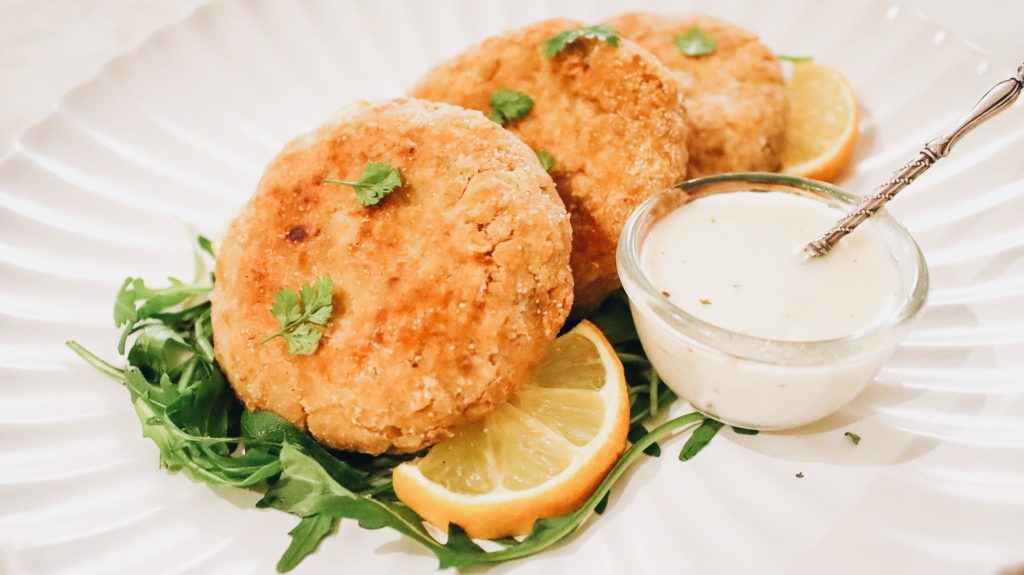Chesapeake Bay’s famous blue crabs have come a long way from being considered a poor man’s protein to the delicacy they are today. Abundant on Maryland’s shores, blue crabs were a vital part of Indigenous Americans’ daily life and diet. In the 1600s, when European colonizers arrived on Maryland’s Eastern Shore peninsula, they were appalled by the fishy food, in turn using it for fertilizer and to feed prisoners and enslaved peoples.
However, many enslaved peoples, especially from the Caribbean, were accustomed to crab meat and weaved it into their typically carb-heavy diet. They would cook them whole over fires or mince the meat to make it last longer, forming it into fritters—this was a method often used in Barbadian, also called Bajan, cuisine.
In the early 1880s, crustaceans began to rise in popularity with colonizers in the Northern states. By World War II, they had become a sought out menu item for the wealthy. In 1930, Crosby Gaige released New York World’s Fair Cookbook featuring Baltimore crab cakes—the name they’re still known as today.
At the core of these croquettes is flavor and creativity, which shines through even without the actual crab. Filling these fritters with fresh vegetables like chickpeas and heart of palm creates the flakiness of the fish, while seasoning it with traditional seafood spices and herbs ties in the savoriness of the crispy crust. For the seafood lover on a vegan adventure, these protein-filled patties take the cake.

Check out more Black American recipes made vegan here.
LIVEKINDLY is here to help you navigate the growing marketplace of sustainable products that promote a kinder planet. All of our selections are curated by the editorial team. If you buy something we link to on our site, LIVEKINDLY may earn a commission.


